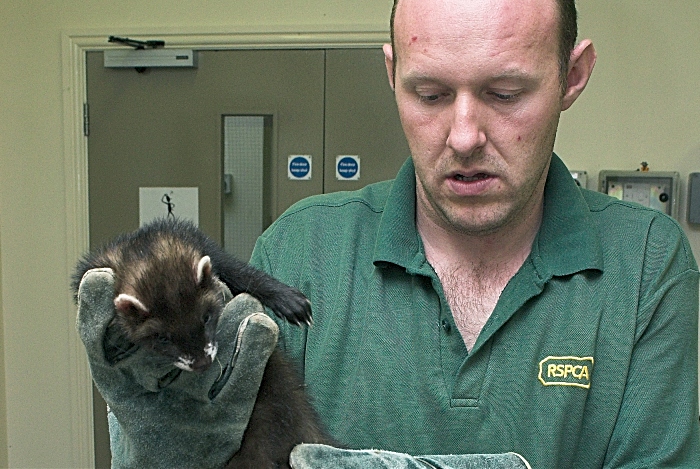
Twenty-five years ago, RSPCA Stapeley Grange Wildlife Centre & Cattery opened its doors and has since treated more than 130,000 animals.
Wildlife supervisor Rob Scrivens has been at the Nantwich centre since day one and shares his memories.
Sitting in a van among the rolling hills of Cumbria, with a group of otters in his van ready to be released after months of rehabilitation, Rob Scrivens took a photo of the breath-taking scenery on his phone and sent it
to his friend with the caption: “Just another day at the office.”
Even after 25 years of rehabilitating animals at Stapeley Grange, Rob doesn’t get bored.
In fact, he still feels incredibly lucky to do what he does.
“On that day in Cumbria, I was taking in this fantastic scenery and thinking ‘wow, I get paid to do this’.
“I have to pinch myself sometimes,” said Rob.
Rob arrived at Stapeley Grange in October 1994 as a 20-year-old with three years experience of working as a zookeeper at a private zoo in Southport.
A colleague had applied for a job at Stapeley Grange – then an empty country house with 12 acres of land bequeathed to the RSPCA by local animal-lover Cynthia Zur Nedden.
Hearing about this new state-of-the-art wildlife hospital which was due to be created, Rob also applied for the position – and has never left.
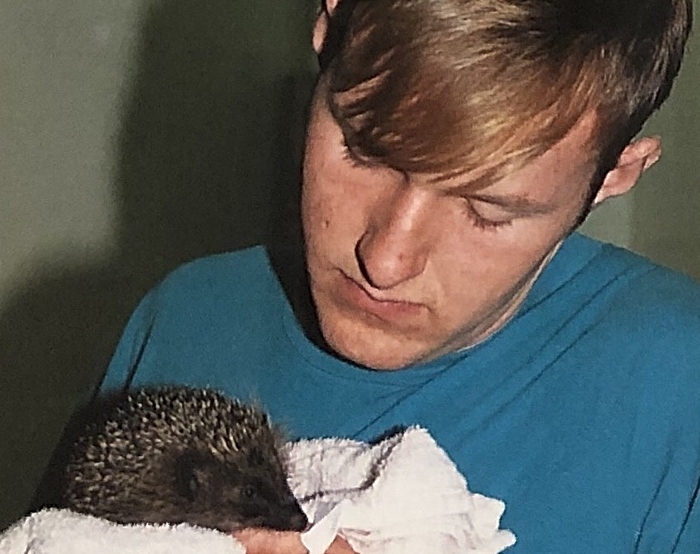
Over time he has seen lots change – even his own position, having been promoted from wildlife assistant to supervisor 21 years ago.
“Definitely the biggest change is that, year on year, we are getting busier,” said Rob.
Last year, the centre treated just over 6,600 animals – compared to 10 years ago, when around 4,500 animals were admitted.
“We have in many ways become a victim of our own success,” added Rob.
“We’ve had a lot of media coverage over the years and have been on TV a lot so people know more about what we do, and as a result the number of animals have gone up and they have come from further afield.
“The different types of animals we get in fluctuates because of environmental impact.
“For example, in the last few years, as the climate has become milder, we get more hedgehogs admitted in early winter as they haven’t gone into hibernation.
“On the other hand, we see less of certain species – starlings, for example.
“We used to get a lot of starlings in but these days we very rarely see them – they’re now a red-listed species.”
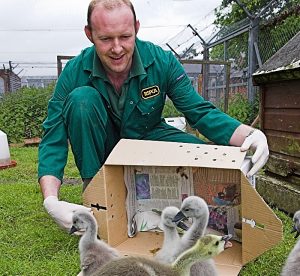
Day in and day out, staff at Stapeley Grange rehabilitate wild animals which come in for a variety of different reasons – some are orphaned, others are injured at the hands of humans.
“You’re there from the beginning of that animal’s journey, helping that animal become rehabilitated and giving it a second chance at life,” said Rob.
“We get a lot of animals at Stapeley which come in because of human intervention, and I like to think that what we do here – helping get the animal better and returned to the wild – helps to redress that balance.”
Working with wildlife is hands-off so that the animals have the best chance of survival when they are returned to their normal environment.
However, sometimes orphaned animals come in so young that their only chance of survival is through being hand-reared.
“That’s always very special,” said Rob.
“Over the years I have hand-reared many orphaned birds and fox cubs.
“In the early days I hand-reared five fox cubs which came into us only a day old.
“I was up all night doing feeds and it was special watching them grow up to become independent animals.
“It’s amazing seeing once-defenceless wild animals become independent.
“It’s especially important that they are rehabilitated to be wild animals and not domestic.
“I always say that if they want to bite you then you’ve done a good job because that means they are still wild and they aren’t relying on you.”
The centre, in London Road, Nantwich, is bustling every day with its various sections – the orphan room, isolation unit, bird pools, oiled bird room, pre-op room and theatre, among others.
But back on the first day of opening, it was still virtually an empty shell.
“Those first couple of weeks we were still setting up the various rooms and taking delivery of equipment,” remembered Rob.
“But not long after opening we had a massive influx of oiled seabirds – we had 950 over the course of a few weeks.
“We were getting a hundred or so in every couple of days. It was very hard work but worth it knowing that we were getting them better to be released back to the wild.
“It was hard work then and it still is today – but it’s great.
“Just last weekend I went to Yorkshire to release some otters. I set off at 5.15am and didn’t get home until 7.15pm – a long day but worth it.
“The job isn’t just a job – it’s a vocation and it becomes a part of your life.
“I still feel incredibly lucky to work at Stapeley Grange even after all these years.”
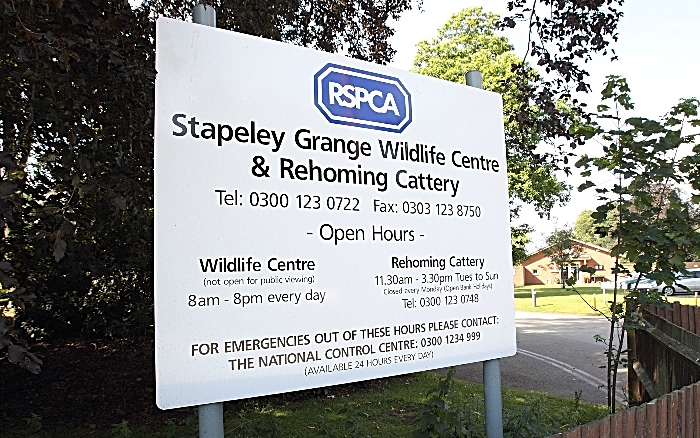









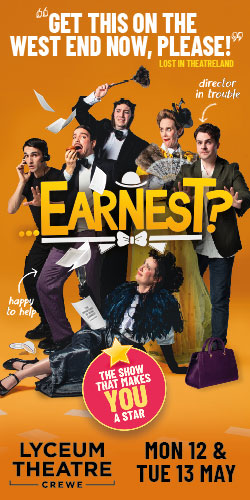








Recent Comments